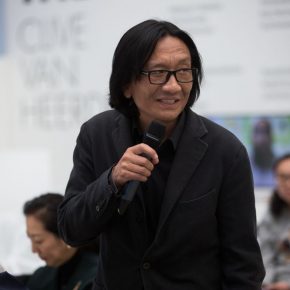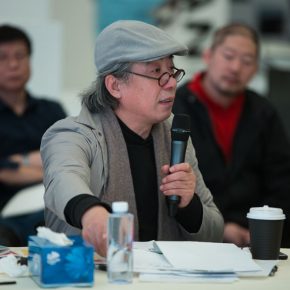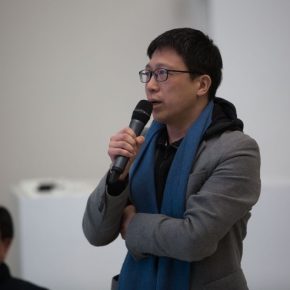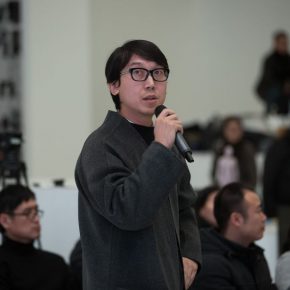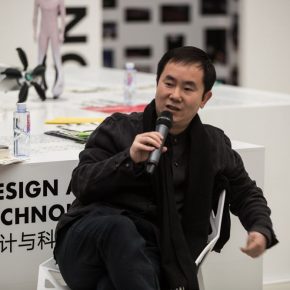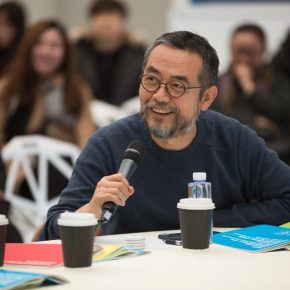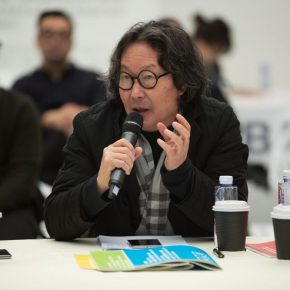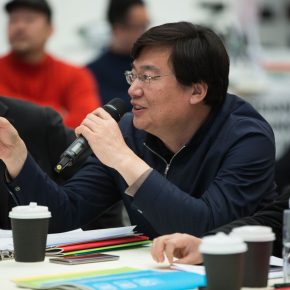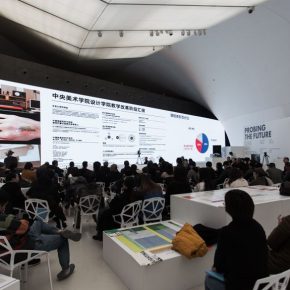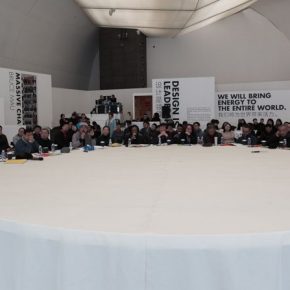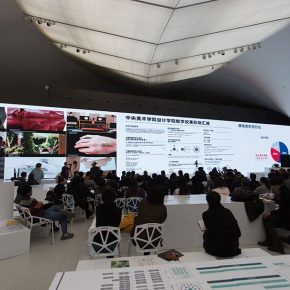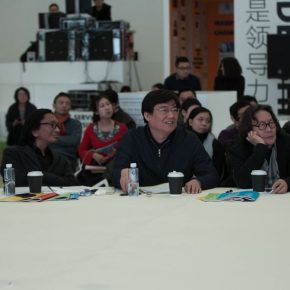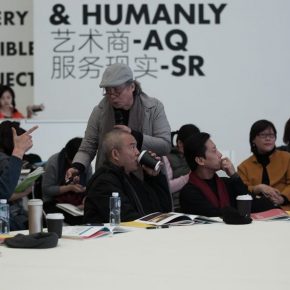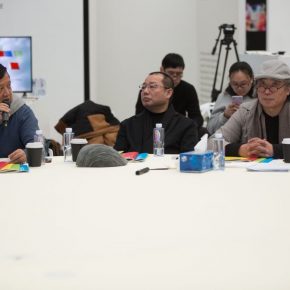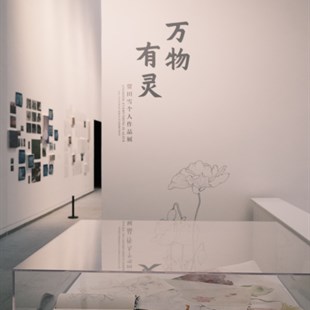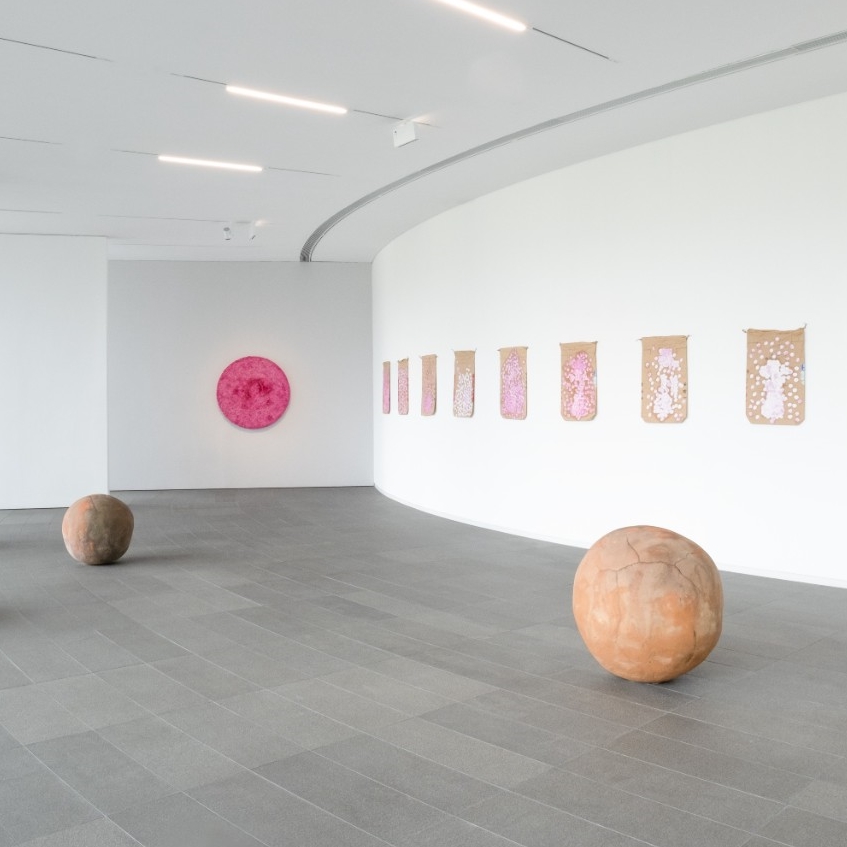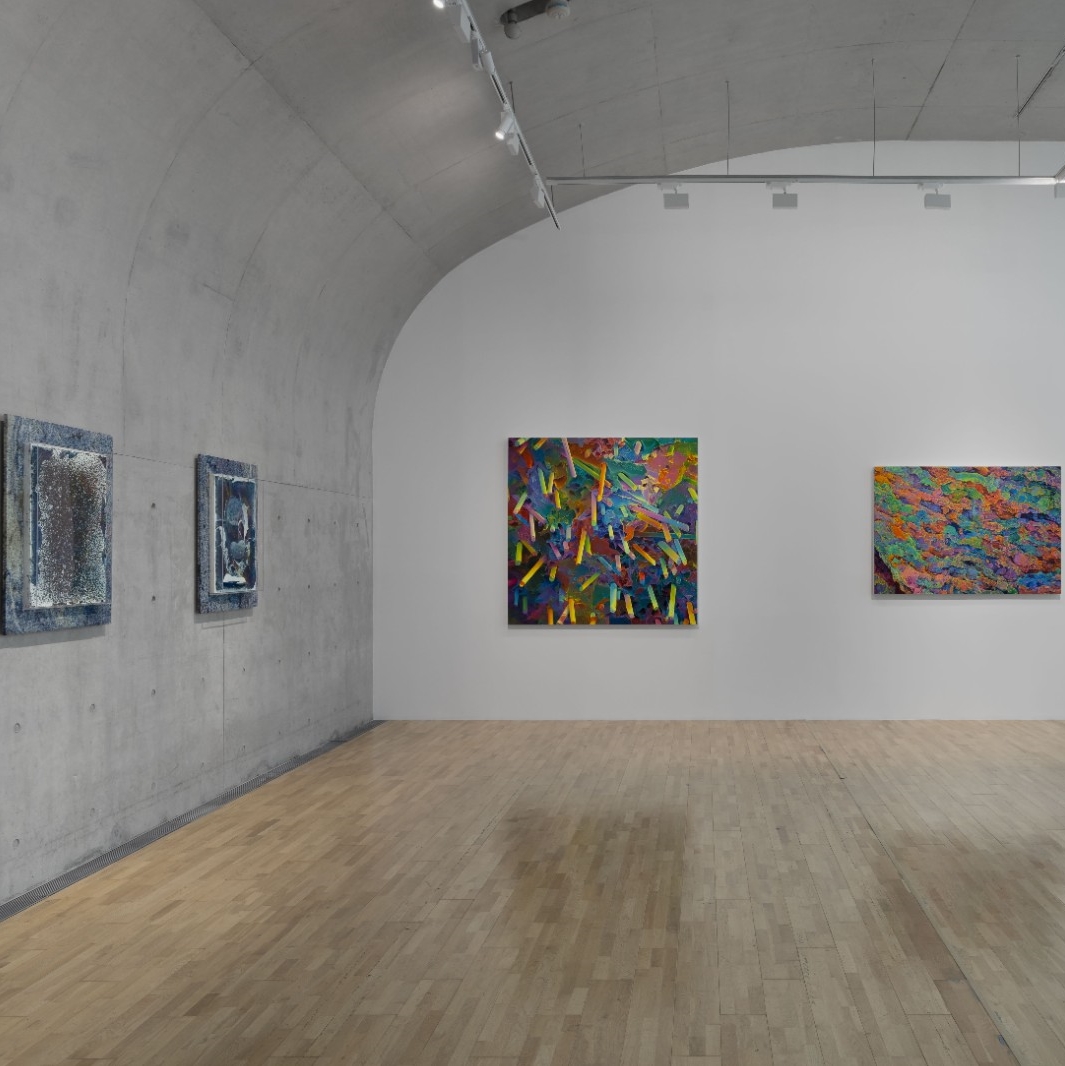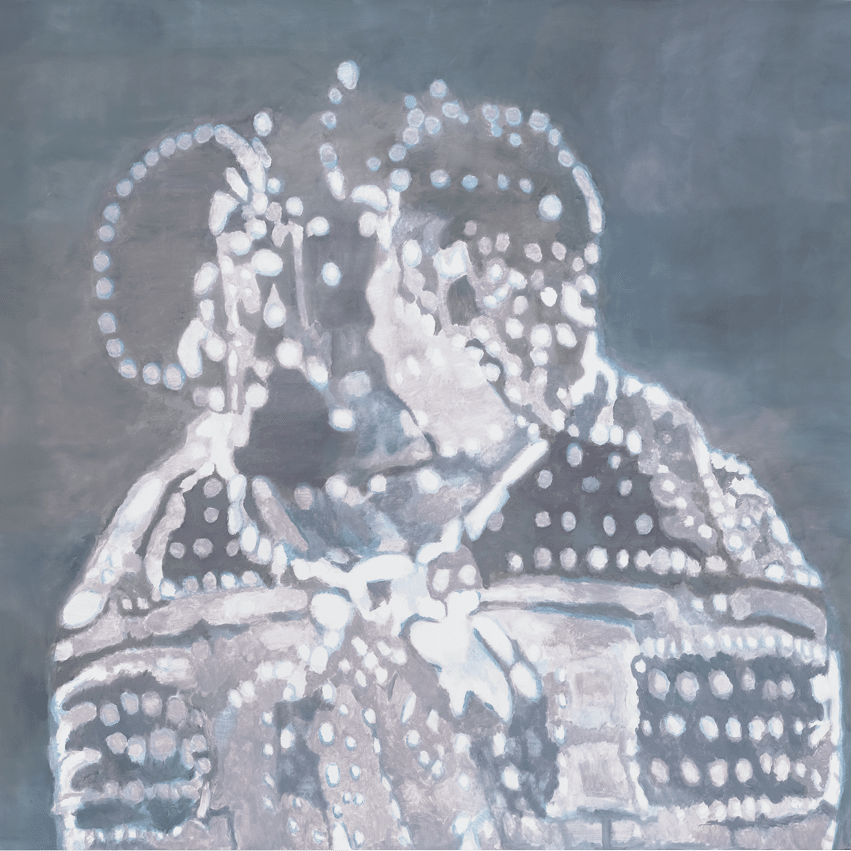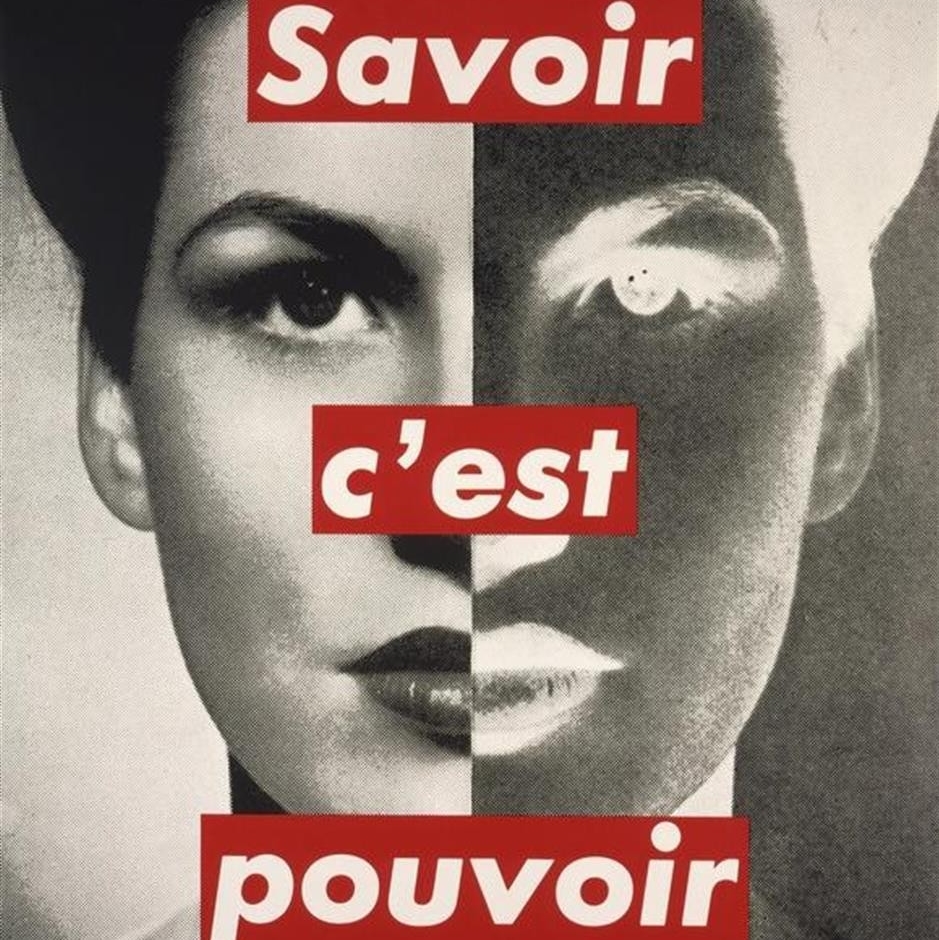
On the morning of December 19, the Periodic Report on the Teaching Reform by the School of Design was held at the CAFA Art Museum, Gao Hong, Party Secretary of CAFA, and Su Xinping, Vice President of CAFA, Wang Xiaolin, Assistant President of CAFA and Dean of the Academic Affairs Office, Xu Bing, Director of the Academic Committee, Deputy Directors Sui Jianguo and Tang Yongli, members of the Academic Committee, heads of various faculties, and the people who are in charge of teaching attended the meeting.
Song Xiewei, Dean of the School of Design, first introduced the “Future Unknown” global education plan. He said that the “Future Unknown” global education plan started with the trend of the times, by gathering global wisdom, to promote the sustainable development of art design education in the world, and it was also an important part of the teaching reform of the School of Design. He gave a speech about the periodical report on teaching reform in the School of Design, and said that, the discipline of design was a major part of the first-rate discipline constructed by the Ministry of Education and had the responsibility to lead the development and reform of Chinese art and design education, how education responds to future science, and the integration & development of humanities disciplines were the problems needed to be urgently solved.
For the teaching reform over the last two years, the School of Design has broken professional barriers, implemented the open-loop mechanism, adjusted its original professional settings, opened various specialized elective courses for students, and emphasized inter-professional integration and exchange. It has finished a large-scale reorganization of traditional disciplines & departmental structures, and also encouraged the learning and thinking in multiple fields and disciplinary fields. In addition to offering the traditional subjects to the students, it also offers students new professions in the fields of sustainable development, social change and social technology, rather than being restricted by the majors. The existing specialties are relegated to second place, while the first place is replaced by a workshop or a comprehensive laboratory, and the teaching of theoretical courses is increased; the resources are reconfigured and the disciplines are redefined based on the research topics and actual needs, in order to solve the major challenges; eliminating the professional boundaries to greatly realize the cooperation and exchange between the traditional professional and new professional areas and the interdisciplinary awareness is replaced by the all-disciplinary pattern.
Consolidating Basic Teaching, Adhering to Cross-Border IntegrationUndergraduate teaching reform is divided into three stages based on grades: the first year takes the basis of plastic arts, design cognition, design basics and skills as three teaching directions, to focus on cultivating students’ basic professional accomplishments. At the same time, according to the instruction by the Ministry of Education, there is a requirement for professors and associate professors to participate in the teaching of the freshmen, and all professors & associate professors from the School of Design have opened a workshop, which is directly open to freshman. In addition, some new content such as design cognition, general courses, annual creations and exhibitions will also be included in the teaching system; the courses for the sophomores and juniors are mainly based on the cultivation of basic and professional qualities. Graduation design courses are adjusted for the seniors, and they can choose more than 1 and less than 3 professional teachers as tutors of graduation design, participating in 2 shows of creation by the combination of the research team and personal creation. The school will also open a series of courses of graduate design and research methods, completely altering the existing specialties and previous curricula, replaced by a model of a studio or a comprehensive laboratory that participates in society and the times, so that the students freely and initiatively choose the professional and technical learning and training, in a comprehensive foundation and structure to go into the research of a direction or a problem.
After giving a report on specific measures for teaching reform, Song Xiewei suggested that the backbone of the future disciplines would be the cross-border integration of planners, researchers, critics, authors, editors, anthropologists, archeologists, engineers, programmers and designers. Re-understanding and expanding design, answering questions in history and contemporary life, and it is our duty to establish a solid foundation for research, education and practice in our discipline, between contemplation and criticism, practice and action, planning and curating.
Faculty Members Made Their Voices heard, Offering Suggestions for a Bright FutureParticipants had a discussion on the teaching reform of the School of Design. Li Yufeng, a teacher from the School of Design, said that the efforts and enthusiasm of the School of Design to promote the teaching reform were touching, and it was also a huge challenge. The representative of the students talked about his feelings of the teaching reform. The reformed curricula are combined with programs, which allow students to gain access to more relevant or professional-related content, offering the future development more possibilities.
Sui Jianguo, Deputy Director of the Academic Committee, fully affirmed the teaching reform of the School of Design, and paid close attention to how to verify the achievements of reform, how the space and curricula rationally so as to correspond with each other, and how to implement the lowest place elimination system, and also make valuable suggestions. Xu Bing, Director of the Academic Committee, expressed his deep concern for how the teaching reform should stimulate the academy to create new vitality and new life, how to make students really understand the possibility and influence of reform between the self and society, times and human civilization. Yu Ding, Dean of the Institute of Arts Administration and Education at CAFA, said the teaching reform of the School of Design was a systematic project, and the implementation of this reform offered valuable experiences to other schools.
Party Secretary Gao Hong offered a conclusion, and fully affirmed the “Future Unknown” global education plan. He said that, in the face of the development of the times, we should assume the responsibility and mission of being the top academy of fine arts, integrating closely with the times and society, innovating on the basis of inheriting tradition, and the teaching reform and results of design were effectively combined, to work together for the positioning and goal of a top academy of fine arts.
Text by Feng Hanlin, translated by Chen Peihua and edited by Sue/CAFA ART INFO
Photo by Yang Yanyuan/CAFA ART INFO


